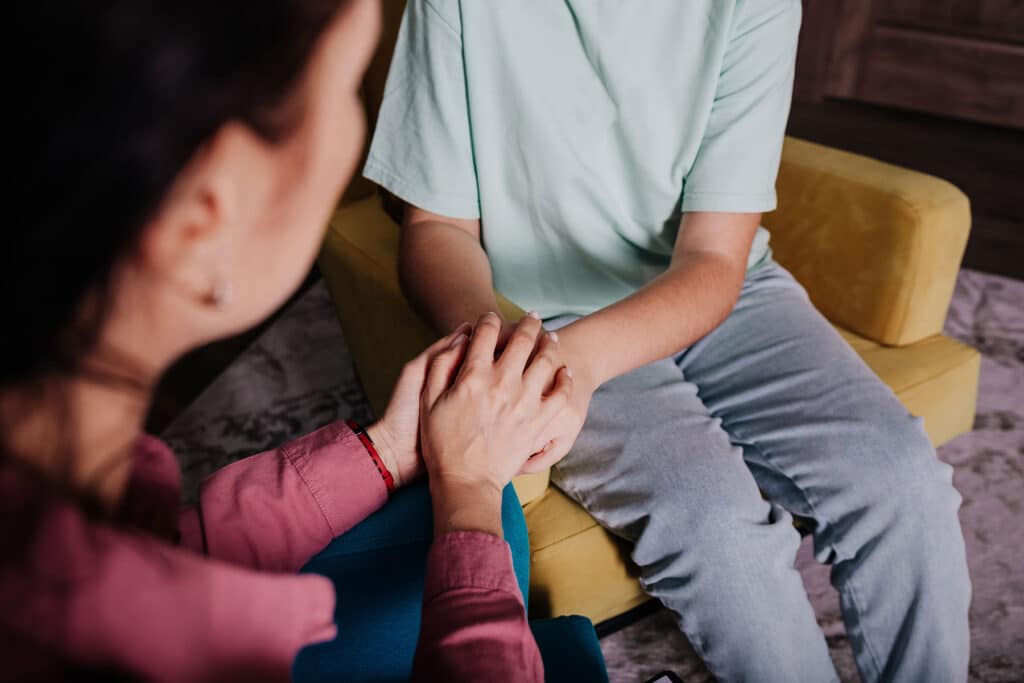The teenage years are not easy when it comes to building relationships. Navigating the landscape of a healthy relationship versus a toxic relationship is a learned behavior that comes with experience and maturity. Having the proper guidance and mentorship from professionals is invaluable to making healthy choices and recognizing red flags to look for in relationships as a teen.
As a parent, understanding these red flags and what to look for when your teen is forming close relationships is critical. Don’t be afraid to ask for help in supporting your teen in this tricky stage of life.
Call Imagine Omaha at 888.306.2681, and the treatment team will answer any questions, verify insurance, and thoroughly explain how teen relationship therapy can benefit your teen.
Red Flags to Look for in Relationships as a Teen
Even if your teen is surrounded by people in healthy and loving relationships, they can fall victim to an unhealthy relationship themselves. A teen’s inexperience in life makes them prey for those who would take advantage of them. They may think they are making intelligent choices on their own, showing their independence, but it can lead them down the wrong path and toward a toxic relationship.
Here are some warning signs that can be red flags to an unhealthy relationship.
Noticeable Abuse
If you see signs of physical abuse, like injuries or bruises that cannot be explained, it should be cause for alarm. Verbal and emotional abuse may also be noticeable in a teen’s behavior changes, especially around the person they are in the relationship with.
Replacing Their Own Interests with Someone Else’s
Couples will naturally support each other’s interests. It’s one thing to try something new to support a significant other, but it’s another thing to abandon something that is important to you to appease someone else.
Apologetic Behavior
Manipulation comes in many forms, and a toxic relationship can cause a teen to be constantly appeasing the other person in the relationship if they are being manipulated or pressured. This can be noticeable if your teen is constantly apologizing for the other’s behavior or making excuses for them.
Reclusiveness
If your teen uncharacteristically starts isolating themselves from close family and friends, you should consider that their relationship could be the cause of this behavior. Emotional abuse could be happening.
Mood Swings
While moody teenagers may be normal, if you notice that the moods are extreme in the relationship, this could be a sign of a toxic and unhealthy relationship.
How Teen Relationship Therapy Can Help
The wrong relationships can be toxic and leave lasting emotional damage. Both a teen’s self-esteem and self-confidence can take a hit. It can be hard to recover from this kind of experience. The verbal and emotional abuse that results from a toxic relationship are just as damaging as physical abuse can be. Teens who find themselves in toxic relationships often blame themselves, and they must know it’s not their fault and that there is a way out and a way forward.
Taking the steps needed to help your teen avoid or end a toxic relationship is the best thing you can do in this situation. Be supportive as soon as you recognize the signs that something is unhealthy with the relationship. Let them know you want to help them and offer suggestions for additional help, like seeking teen relationship therapy. Sometimes, a third-party intervention is better received than just parents giving advice. Teens also benefit from peer-to-peer support in therapy, where they can talk with and find support from other teens going through similar experiences.
Reach Out to Imagine Omaha
Imagine Omaha specializes in treating adolescents between the ages of 12 and 18. The teenage years are full of milestones, which can bring on many emotions. There is no shame in struggling with mental health issues, sexual identity, self-confidence, peer pressure, or romance.
The extra support of professionals—alongside family and peer support—can make navigating these challenges more manageable. Unhealthy habits can easily form without the right support, and there is no reason to put your teen at that risk if you can avoid it with the right help. A teen relationship counseling program is designed to arm teenagers with the tools and techniques to avoid toxic relationships and instead focus on healthy relationships.
By recognizing red flags to look for in relationships as a teen, both you and your child can build healthier relationships and happier lives. Reach out to Imagine Omaha online or call 888.306.2681 today.

